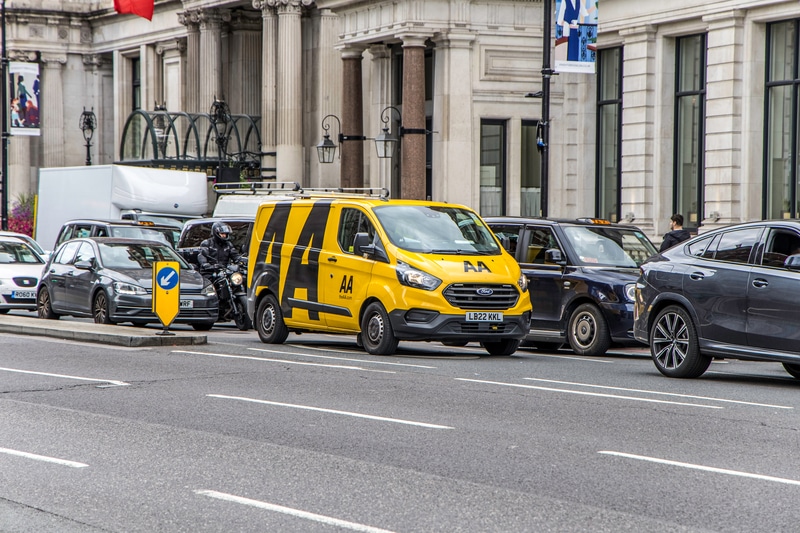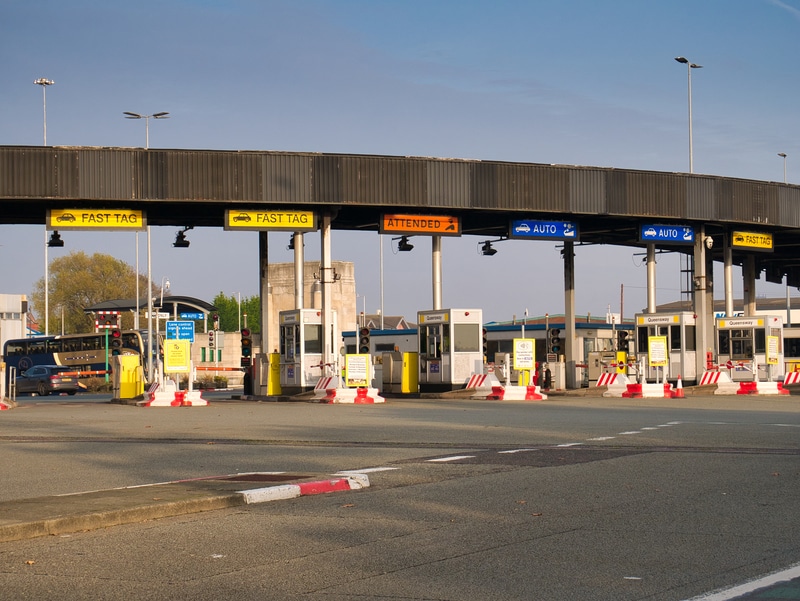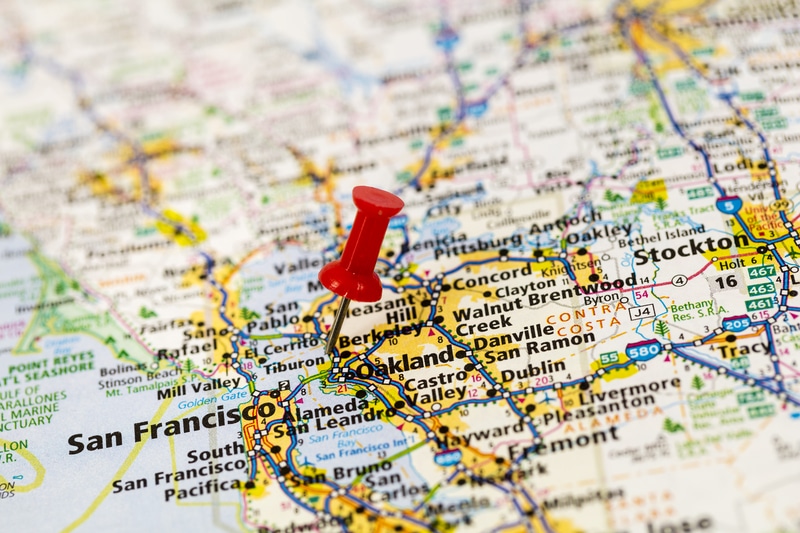The United Kingdom is made up of four nations that provide a diverse range of experiences for visitors. From the global bustle of London to the vibrant northern cities of Manchester and Leeds, the tranquillity of its national parks, and the grandeur of the Scottish Highlands.
While the UK is relatively compact, getting around, particularly to out-of-the-way places, can be more challenging if you don’t have access to a car. Opting for easy car rental from one of the UK’s many airports or city centre locations gives you the ultimate freedom to explore.
This guide will provide comprehensive information on car rentals, managing tolls, and adhering to traffic laws, to ensure your Great British road trip is memorable for all the right reasons.
Decision Making: To Rent or Not To Rent

While public transportation in the UK’s major towns and cities can be comprehensive, getting to some locations without a car can be more challenging. Rail fares are relatively expensive, which can make travelling by train a costly exercise when you have a family. To truly enjoy some of the UK’s most iconic locations such as the Cotswolds, Peak District, Scottish Highlands, Cornwall, or Snowdonia, a car can be the most sensible and cost-effective option.
When you rent a car you can be flexible in your plans, tailoring your itinerary to your interests, while covering the miles more efficiently.
Where To Rent Your Car
There’s no shortage of places from which to rent a car in the UK, with dozens of operators to choose from. Every major airport has a rental centre where you can choose from a wide range of vehicles. You’ll also find rental car outlets in every major town or city.
Opting to rent your car directly from the airport using a comparison site such as Cheaper Than Cars can make the process simpler while giving you access to the most competitive prices.
Insurance & Roadside Assistance

Before heading out on your British adventure, it’s important to ensure that you’re adequately covered when it comes to insurance. Breakdowns without insurance can be costly as well as inconvenient.
The principal types of car insurance include:
- Collision Damage Waiver (CDW): Covers damage to the rental car in case of an accident.
- Theft Protection (TP): Covers the cost if the rental car is stolen.
- Third-Party Liability: Covers damage to other vehicles or property in an accident.
- Personal Accident Insurance (PAI): Covers medical expenses for the driver and passengers in case of an accident.
Most rental companies will offer a range of insurance packages. While these are convenient, it can sometimes be cheaper and more comprehensive to arrange cover in advance.
For added peace of mind, it can be sensible to include roadside assistance in your rental package. This will typically include breakdowns, towing, and other emergencies. If required, it can sometimes include a replacement vehicle.
Including road assistance in your rental package gives you crucial peace of mind. This will typically include breakdowns, towing, and other emergencies. It may also include a replacement vehicle.
Many UK rental companies will provide a support line that can be used if a breakdown or other incident occurs. If necessary, they may be able to arrange roadside assistance. Ensure you understand how to use any service offered by your rental company and always keep the contact information close at hand.
Fuel Consumption and Cost Efficiency
Choosing the right vehicle in terms of fuel efficiency can significantly impact your travel costs. Here’s a comparison of different types of vehicles:
Electric Vehicles (EVs): While EVs are environmentally friendly and have lower running costs, charging infrastructure may be less available in remote areas. The UK’s charging infrastructure is expanding, but some areas are better covered than others. The cost of renting EVs may also be higher.
Hybrids: These offer a balance between fuel efficiency and range, making them a good option for both city and countryside driving.
Petrol Vehicles: Generally cheaper to rent but less fuel-efficient. However, petrol stations are never too far away, even in more remote areas.
UK fuel prices can fluctuate considerably, but as of summer 2024, expect to pay around £1.45 per litre for petrol, and £1.50 per litre for diesel.
While new vehicles will be more fuel-efficient they may cost more to rent. If you’re likely to cover considerable distances in your rental car then choosing a newer vehicle may be the most cost-effective option.
Tolls & Traffic Fines

Compared to many of its European neighbours, the UK has relatively few toll roads. Those that there are tend to be around major cities:
- M6 Toll: This toll road in the Midlands provides a quicker alternative to the often congested M6 motorway. Tolls vary by vehicle type and time of day, generally costing around £5.90 for cars.
- Dartford Crossing: A toll is charged for crossing the River Thames east of London, with charges of £2.50 for cars.
- London Congestion Charge: Driving in central London between 7:00 am and 10:00 pm Monday to Friday incurs a charge of £15 per day. There is also an additional Ultra Low Emission Zone (ULEZ) charge for older, more polluting vehicles.
Payment methods for tolls include cash, credit cards, and electronic systems like Dart Charge for the Dartford Crossing. For the London Congestion Charge, payments can be made online, via mobile app, or at designated retail locations.
You may also encounter historical local toll roads in some rural areas with very low tolls payable in cash.
Speeding Tickets
The UK enforces strict traffic regulations, and fines for speeding can be significant. Speed limits are generally 70 mph on motorways, 60 mph on single-carriageway roads, and 30 mph in built-up areas. Fines for speeding start at £100 and can increase significantly depending on the severity of the offence. The responsibility for paying fines lies with the driver, and the rental company may charge an additional administrative fee for processing the fine.
An extensive road camera network, particularly through built-up areas, means there’s a high chance of getting caught should you break the speed limit.
Planning Your Route

Planning your route can help you get more out of your visit to the UK. Planning is particularly important if you’re renting an EV, where knowing the location of charging points is essential. Apps like Zap-Map can help you locate charging points during your journey. Petrol and hybrid vehicles won’t have many problems finding fuel, but it’s important to fill up before you venture into more remote regions.
The diverse geography of the UK provides numerous scenic drives:
- Lake District (A591): This scenic route takes you through stunning lakes, mountains, and charming villages in one of the UK’s most beautiful national parks.
- Cotswolds (A429): Explore rolling hills, historic market towns, and picturesque villages in the heart of England.
- North Coast 500 (Scotland): A 500-mile loop around the northern coast of Scotland, offering breathtaking coastal views and rugged landscapes.
- South West Coastal 300 (Scotland): A scenic drive around the southwestern coast of Scotland, known for its stunning cliffs and coastal scenery.
- Jurassic Coast (A35): Discover the stunning coastal scenery and fossil-rich beaches along the Jurassic Coast in southern England.
Driving Tips & Regulations
Driving in the UK is generally a safe and pleasant experience, but there are some key points to remember, particularly if you come from a country where they drive on the right.
- Driving Side: For many overseas visitors the the UK, this is the big one to remember. In the UK, vehicles drive on the left side of the road.
- Parking Rules: In cities, look for designated parking areas and obey parking signs to avoid fines. Pay-and-display machines are common.
- Seat Belts: Wearing seat belts is mandatory for all passengers.
- Mobile Phones: Using a mobile phone while driving is prohibited unless you have a hands-free system.
- Alcohol Limits: The legal blood alcohol limit is 0.08% for regular drivers and 0.05% in Scotland. As a general rule, it’s inadvisable to consume alcohol at all when driving a rental car in the UK.
- Roundabouts: The UK has many roundabouts which can often catch out overseas visitors. Always yield to traffic from the right and signal your exit.
Simple etiquette such as raising your hand in acknowledgement when you’ve been let out at a junction is appreciated by other drivers.
Time To Start Planning Your Great British Adventure
There’s a wealth of places to discover among the four nations of the UK. From vibrant buzzing cities, to tranquil, timeless rural landscapes, and idyllic coastal hideaways. Renting a car gives you the freedom to explore this compact but incredibly diverse country for yourself.
With Cheaper Than Cars you can easily compare the prices of dozens of car rental companies across the UK. Whatever the size of your party, your budget, and your travel plans, we’ve got your transport needs covered.




![15 melhores paragens da viagem de carro de Los Angeles a São Francisco [em 3 dias]](https://www.cheaperthancars.com/blog/wp-content/uploads/2019/11/LA-to-San-Francisco-Road-Trip-218x150.jpg)


